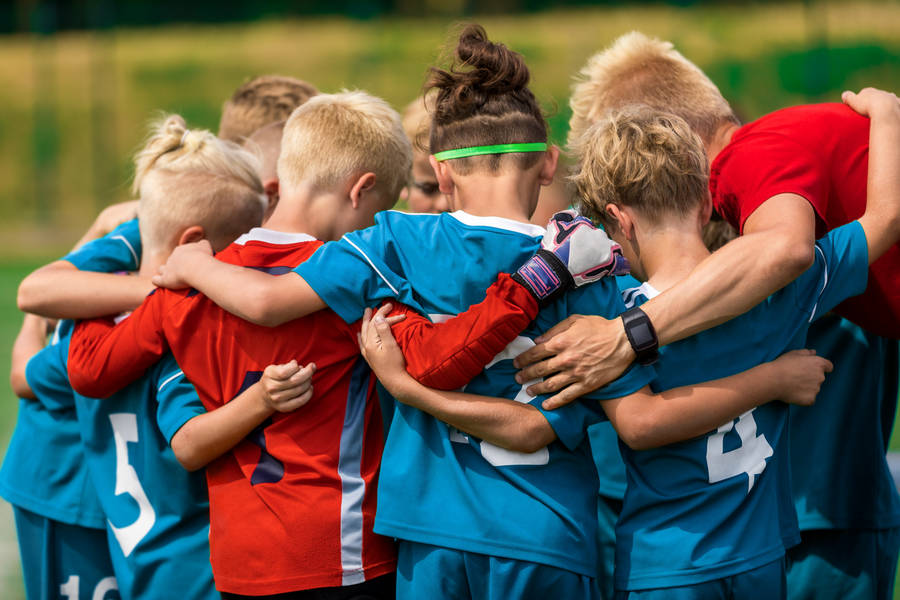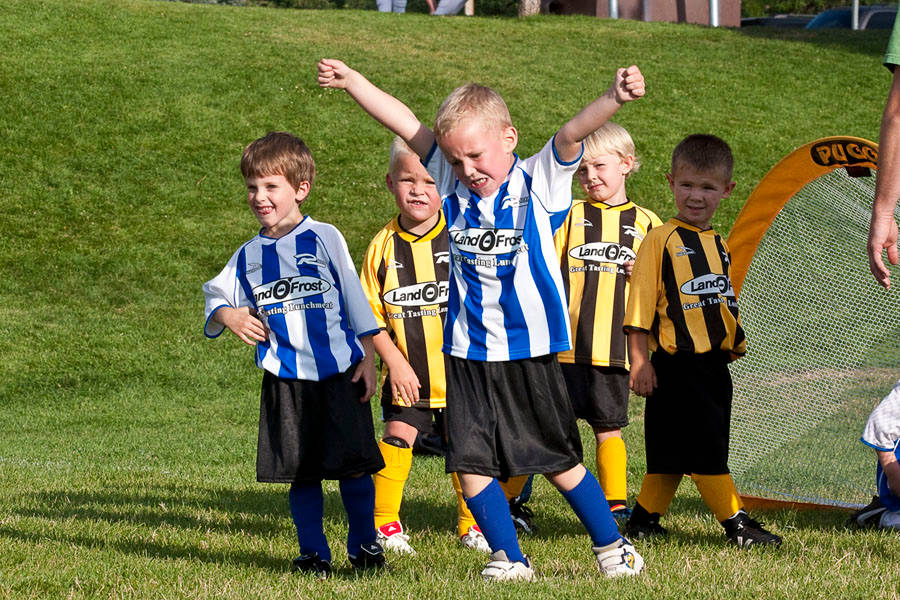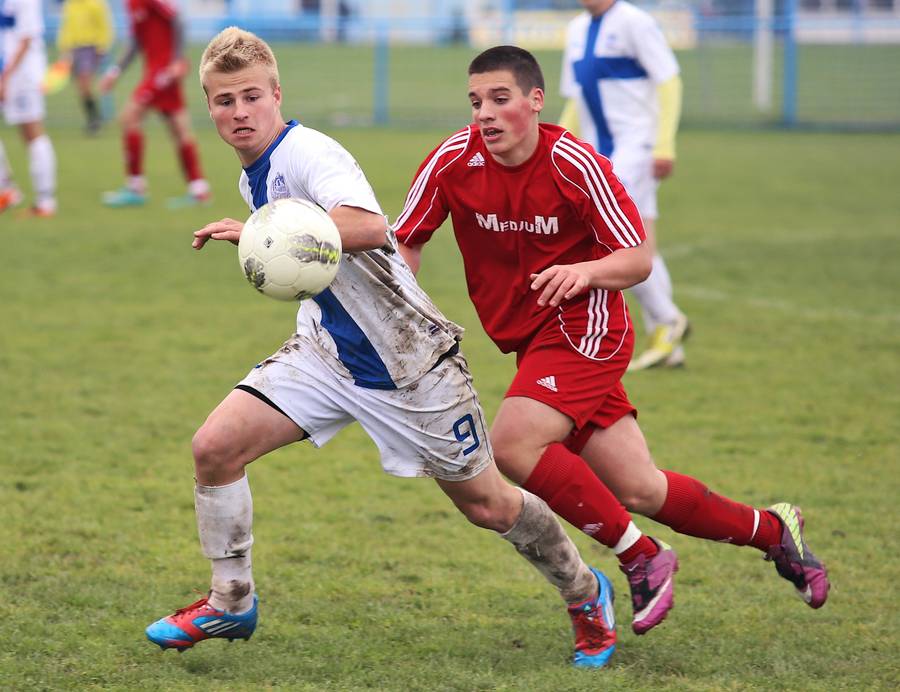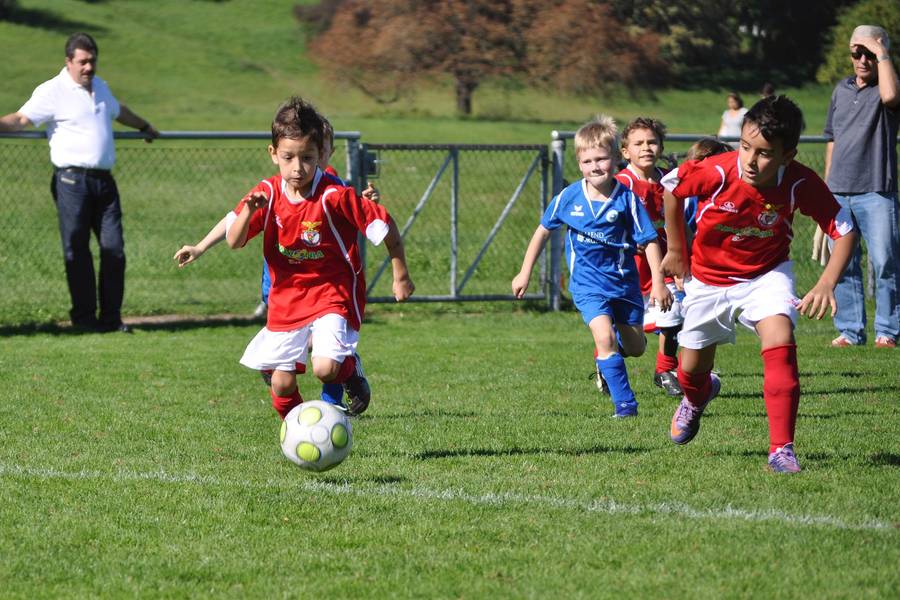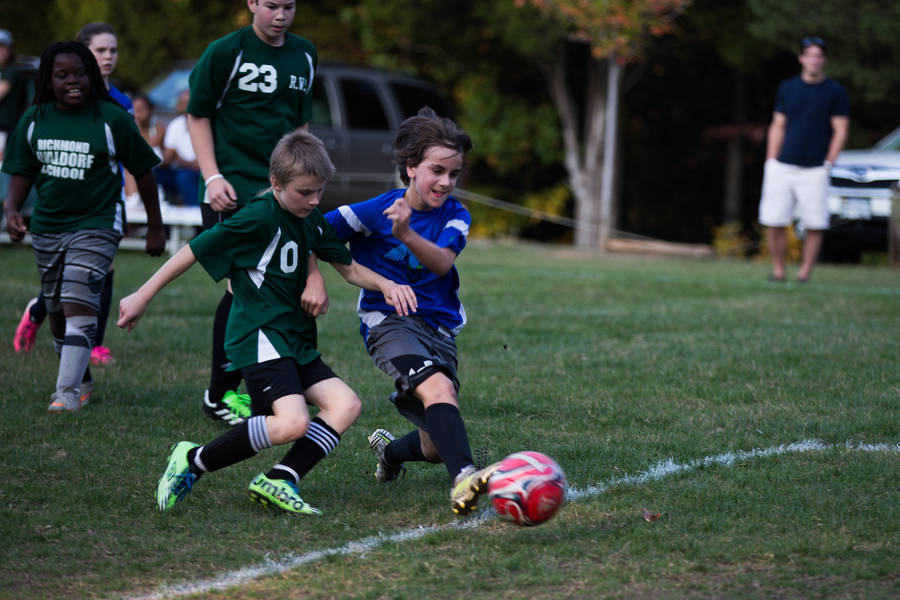
Is the concept of sportsmanship too dated and is it completely trumped by the desire to win in football?
How big a role does old fashioned sportsmanship play and should it be an important factor within junior grassroots football? Whose responsibility is to ensure that junior players are approaching the game in the right way and demonstrating the right behaviour? Parents, coaches, the players themselves or all of the above? We are raising young people, not just football players so is it important to instil good sportsmanship values that run as a thread through the game or does this run the risk of dulling their drive and blunting their competitive edge?
Like most coaches, I’ve always tried to keep sight of the fact that junior football is not just about playing the game, but about cultivating values that young players can carry with them into all aspects of life. I’ve always felt that promoting respect, integrity, and sportsmanship on and off the field is important for the overall development of young players both for their own personal development and for ensuring that football remains a positive and inclusive experience for everyone involved.
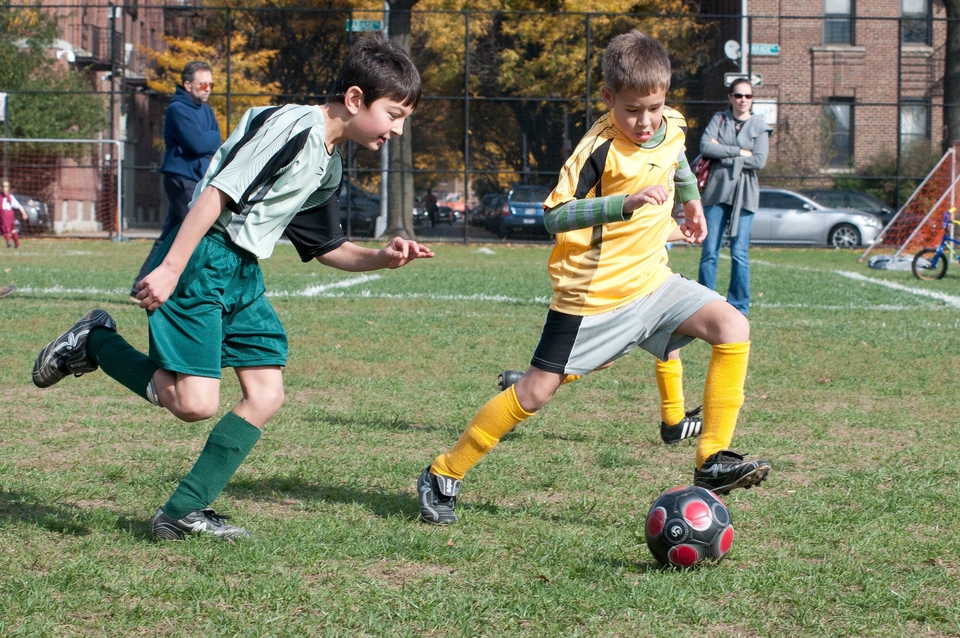
I feel that the roots of respect in junior football start with an understanding that every player, coach, and parent is an important part of the football community. Respect for teammates, opponents, referees, and the game itself creates an environment where players can build confidence and thrive. This culture is usually built on the actions and attitudes of those adults involved in the sport, making it imperative for coaches and parents to lead by example.
Coaches arguably play the most pivotal role in setting the tone for respect and sportsmanship. Their influence extends far beyond tactics and skills. A coach who demonstrates respect for all players, regardless of their skill level, begins to instil the same values in their team. This can be achieved through positive reinforcement and by treating every player with dignity. For instance, when a coach takes the time to commend not just the star player but also the one who shows significant improvement or effort, it reinforces the message that every contribution is valued.
Practical strategies for coaches include setting clear expectations for behaviour from the outset. Discussing and reinforcing the importance of respect and good values, including sportsmanship, can help embed these into the team. Talking through scenarios where players might encounter disrespectful behaviour can prepare them to handle such situations with maturity. Additionally, some teams have developed their own codes of conduct with player input which provides a sense of ownership and accountability.
By doing this it can positively affect the behaviour of players but also, and arguably most importantly, vicariously affect the behaviour of parents.
Parents often have the most significant impact on cultivating a positive and respectful atmosphere. Children most often mirror the behaviour they see in their parents and therefore, it is essential for parents to exhibit positive behaviour at games and training. This includes demonstrating support for all players, refraining from negative comments about referees or opponents, and encouraging their children to play fairly and with integrity. By doing so, parents reinforce the values of respect and sportsmanship, making it clear that these principles are more important than the scoreline. “It’s not what you do, it’s the way that you do it.”
A real life example of this can be seen in the Respect programme implemented by the Football Association (FA) in the UK. This initiative aims to improve behaviour across all levels of football, promoting a culture where respect is at the core of the game. It includes measures such as designated spectator areas to reduce pressure on young players and training for coaches on managing behaviour. Such programmes underscore the importance of the collective effort in building a positive sporting culture in junior grassroots football.
Players themselves must take some responsibility as they are the heart of this culture, and their actions speak volumes. Encouraging young players to be gracious in victory and composed in defeat is fundamental. Celebrating with humility and acknowledging the efforts of opponents develops mutual respect. Players should be guided to understand that respect and sportsmanship are not just about adhering to the rules of football, but about honouring the spirit of the game.
We know all too well that junior players look to the top professionals and replicate their behaviour both in terms of their skills with the ball but also their approach to the game. The top players aren’t always the best role models with their constant barracking of referees and diving, but there are also some great examples of good sportsmanship too.
One of the most memorable acts of sportsmanship in Premier League history took place when West Ham United were playing against Everton and the Everton goalkeeper Paul Gerrard went down injured outside his penalty area. Despite having a clear opportunity to score with the goalkeeper out of position, West Ham's Paolo Di Canio caught the ball instead of taking advantage of the situation, signalling for medical assistance for Gerrard. This act of fair play was widely applauded and earned Di Canio the FIFA Fair Play Award.
In a keenly contested match between Liverpool and Arsenal at Anfield, Liverpool striker Robbie Fowler demonstrated exceptional honesty in the days before VAR. Fowler was awarded a penalty after an apparent foul by Arsenal's goalkeeper David Seaman. However, Fowler immediately protested to the referee insisting that Seaman hadn't touched him and that it was a genuine fall and not a penalty. Despite Fowler’s pleas, the penalty decision stood, and although he took the penalty kick, Seaman saved it.
More recently Liverpool's James Milner exhibited great sportsmanship by helping an opponent with a cramp during a game. While Bournemouth’s Andrew Surman was down in pain, Milner assisted him, despite the match being in progress. This small act of kindness during a competitive game serves as a reminder that helping others and showing compassion is integral to the spirit of the game.
Promoting respect, integrity, and sportsmanship in junior grassroots football is essential for the development of young players and the health of the sport itself. Integrating good values regularly into training sessions ensures that they are not just an afterthought but a core part of the footballing experience.
Given the competitive nature of the game though it is unrealistic, and probably not healthy to dampen the competitive fire burning in each individual. Conflicts and difficult situations are likely to arise and helping young players to handle disputes calmly and respectfully is invaluable to conflict resolution. This includes encouraging open communication, empathy and understanding different perspectives. When conflicts arise, addressing them promptly and fairly sets a precedent for how players should conduct themselves both on and off the field.
Grassroots clubs can also implement recognition programmes that reward sportsmanship. Awards for fair play, teamwork, and respect can motivate players to uphold these values. Publicly acknowledging acts of sportsmanship during matches or club events reinforces their importance and encourages others to emulate such behaviour.
Inclusivity is a fundamental component of respect. Ensuring that football is accessible and welcoming to players of all backgrounds and abilities enriches the game for everyone. This means actively promoting diversity within teams, providing equal opportunities for all players and challenging any form of discrimination. By doing so, clubs create an environment where every player feels valued and respected. The FA’s initiative to support the inclusion of players from various backgrounds, such as the ‘Football Your Way’ plan, which focuses on making football accessible to disabled players, exemplifies the strides being made towards inclusivity. These efforts highlight the importance of ensuring that football remains a game for all, reflecting the broader society in which it is played.
Ultimately, the responsibility of building a culture of respect and sportsmanship lies with the entire football community. Coaches, parents, and players must work together to create an environment that prioritises these values. By doing so, they ensure that football remains a positive and enriching experience for all involved, nurturing not just better players, but better individuals.

